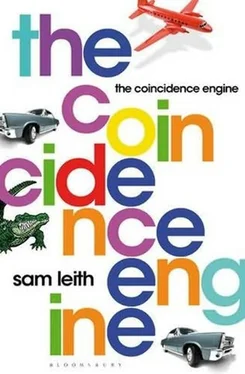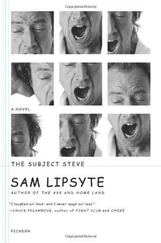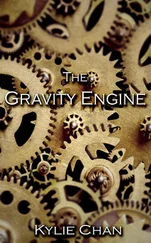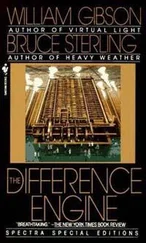One fragment described Ana Banacharski’s courtship with Nicolas’s father, Sergei Mitrov, in Berlin in the late 1920s. Mitrov was a Russian anarchist who had fetched up there after fleeing the Bolsheviks. She had moved to the city as a student, and they met after she attended a meeting in the radical bookshop where he was staying. She had fallen pregnant, and they moved through Europe together living, unmarried, as a family.
Then came the Spanish Civil War. Mitrov joined the International Brigades, and Ana moved back to her parents’ in East Prussia. Nicolas would then have been seven. Three years later, when Germany annexed Poland, and the persecution of Allenstein’s Polish-speaking minority began, Ana fled with Nicolas to France. Ana’s story described the old man, her father, waving from the door of the town house – his moustache, his mild smile and the turn-ups on his trousers. It was the last time she saw him.
Mother and son spent the war years in a series of refugee camps. ‘Her Nicolas, her little Buddha, her watchful child,’ her narrator wrote. ‘Ana knew she would have to leave him.’
Nicolas’s own narrative picked up here. He talked about his memories, the watchful child reporting. At some point they had been reunited with Mitrov. He remembered his mother, terribly distressed, in the camp outside Paris. He had worked out afterwards, only from his mother’s memoir, that he had had a sister who was stillborn at about that time.
But in 1942 Mitrov was separated from Ana and his son by what Banacharski called ‘a malign chance’. His letters stopped coming. He did not survive the war. Nicolas wrote, curiously, that he had no memories of his father at all.
These communications resembled love letters not in anything explicit, so much as in their intimacy of address, their notes of tenderness, the parallels they drew between past and present. There had been a girl he had known in the refugee community at Chambon-sur-Lignon, he said, called Kara. Isla reminded him of her. She had resembled Isla, he said, though he did not say in what way. He sketched out a chaste friendship between the fourteen-year-old Nicolas and sixteen-year-old Kara, complicated by longing. Her father was Danish – a wealthy man in the antiques business. He had not encouraged their friendship. They’d been separated, though he’d had letters from her after the war. She hadn’t died. But she had disappeared. In his early twenties Nicolas had tried to find her without success.
‘Gone,’ he wrote. ‘Another gone. Another lost to time.’
His letters seemed confiding, tender, anxious that what had happened to him would be known, and his connection with her maintained.
‘Chance – or the illusion of chance – is what divides us one from the other. It is chance that carries us apart. Chance that kills us. But what if chance could make us live? What if chance brought us together again? It is just a matter of seeing it right. Of turning it around.’
Isla wrote back, in one letter: ‘Nicolas, you say it is chance that divides us. But is also chance that makes us live. You lost people by accident. But you also found them by accident. You found me by accident. Every human being on the face of the earth is here – you said it yourself – by chance.’
‘You misunderstand. Deliberately?’ he wrote back. ‘For everyone who is born hundreds of millions of people – real people – are never born. Who speaks for them? They are nobody. Who will rescue them? What if you could imagine a world in which those people live and are not alone and do not grow old and die? And what if by imagining you could make it so?’
In early autumn, via EtUdes/RecOltes , came another letter, sharper in tone than any of the previous. It wondered, with crude sarcasm, whether she was in the employ of ‘the other side’. It asked her to come and visit him. It said he had something to give her. But before, it said, she needed to answer him one simple question: ‘Nobody has been reading my letters. I have proof positive. I need to know that you are who you are. So answer me this: what is a metre? Reply quickly.’
Isla called her colleague Mike about this. She was worried, she said. She sat in the kitchen of her house in Cambridge and showed him the last letter from Banacharski. What could he mean? Mike shook his head. ‘Buggered if I know,’ he said. ‘Your boyfriend is, let’s not forget, mad as a badger.’
‘A metre,’ she said. ‘It’s a measurement. He’s preoccupied by measurements. And he’s trying to build a machine. He says he’s finished it.’
‘Clear as flaming mud, love. I’d leave it. Write back and tell him it’s something to do with Napoleon. He probably thinks he’s something to do with Napoleon.’ Mike seemed moderately pleased with the witticism. He fetched himself another of Isla’s biscuits and moved on to some faculty gossip.
‘What is a metre?’ he said as he left. ‘A hundred centimetres, eh?’
Isla did not show Mike the letters she had got privately. And she did not tell him about Ana’s ring. She was still turning it over in her mind two days later. She was leaving for her 10 a.m. seminar, running late and with her hair still slightly wet against her neck, when she picked up the post from the tiled hallway. There were two letters, forwarded from Nice. Both were bulging, as if there was more paper in them than their envelopes were strictly designed to bear.
She tucked them under the arm of her duffel coat as she stepped out into the street. She slipped open the first one with a thumbnail, her bag on her lap, as she settled on the top deck of the bus on the way in to the faculty. She felt her cheeks grow cold as she read.
The yellow legal paper was in some places torn with the force of the handwriting. Block capitals alternated with lower case, no one letter joined up with another, and words of German and French mashed into English sentences. The ruled lines on the paper were only ever a loose guide when Banacharski was excitable – but here the lines of his script were flapping off them like an untethered mainsheet in a gale.
It was a wad of incoherent fury, calling her a ‘thief’, a ‘liar’ and a ‘Judas’. It accused her of working with ‘the enemy, the murderers, the Moloch’. The second letter was shorter, and barely in prose at all. On the first page, her name was written in block capitals, dead centre, and a series of numbers scribbled underneath – separated by dashes and subject to a whole succession of transformations that brought them out to new numbers. She leafed through. He was using the letters of her name – it would be Kabbalah, she guessed; he had spoken to her about using Kabbalistic practice for, he said, exploring ‘the relationship between speech and number’.
On the following pages the letters of her name had been anagrammed, and further manipulated into numbers; or, the letters of her name were written out as a matrix, and multiplied by another matrix constructed from the same letters. Her eyes started to swim. He couldn’t have slept. Nobody could physically have achieved the rate and ferocity of work in these letters – would not physically have been able to write them down – in the time between them.
They were both dated the same day, though they bore different postmarks and had clearly been held up a few days between Paris and London. Isla, scouring her memory, couldn’t swear to it that they hadn’t been written on the same day as the original letter posing the riddle. The final page of this second letter ended: ‘Nothing comes of nothing. Nobody’s here. We are divided by nothing. Forgive me.’ His signature at the bottom was also bristling with numbers, all of them cancelled to zero.
She missed her stop. She was twenty-five minutes late for her seminar by the time she got there and she noticed her hands trembling as she wrote on the whiteboard. She felt very afraid. She cancelled drinks with Mike and Jude. She spent the afternoon talking to the faculty and the college about a temporary, emergency leave of absence. The first flight she could get to Toulouse was the following lunchtime. It would cost her. She didn’t think about that.
Читать дальше












